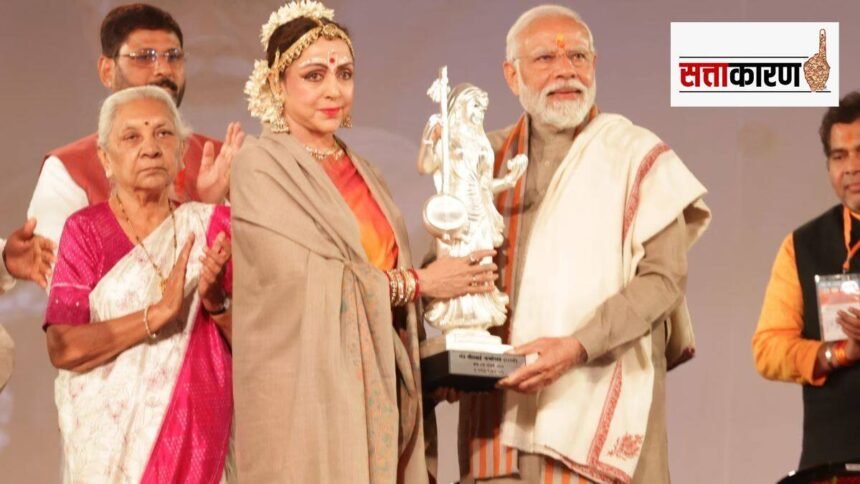Prime Minister Narendra Modi’s recent visit to Mathura for the Mirabai Janmotsav, coinciding with the upcoming assembly elections in Rajasthan, has been interpreted by many as a strategic move to woo the state’s voters.
The event, commemorating the 525th birth anniversary of medieval Bhakti saint and Krishna devotee Mirabai, was held in Uttar Pradesh, just a stone’s throw away from Rajasthan. Modi’s presence at the event was seen as an attempt to connect with the large Krishna devotee community in Rajasthan, a key demographic that could influence the election outcome.
Strengthening BJP’s Position in Rajasthan
The Bharatiya Janata Party (BJP) is currently facing an uphill battle in Rajasthan, where the incumbent Congress government is seeking re-election. The BJP’s strategy is to consolidate its support among its core Hindu voter base, and Modi’s visit to Mathura was seen as a way to shore up support among Krishna devotees.
Mirabai, a revered figure in Hindu tradition, is particularly popular in Rajasthan. Her devotional songs and poems continue to inspire devotees across the state. By attending the Mirabai Janmotsav, Modi sought to project himself as a champion of Hindu traditions and values, an image that could resonate with voters.
Political Implications of the Visit
Modi’s visit to Mathura has also been seen as an attempt to counter the Congress’s perceived soft stance on Hindutva issues. The Congress has been criticized for its handling of the Ram Janmabhoomi dispute and its perceived appeasement of minority communities. By aligning himself with the Hindu reverence for Mirabai, Modi aimed to neutralize these criticisms and position the BJP as the party that upholds Hindu traditions.
The impact of Modi’s visit on the upcoming Rajasthan elections remains to be seen. However, the BJP’s strategy of emphasizing Hindutva and connecting with religious communities is likely to play a significant role in the electoral battle.






